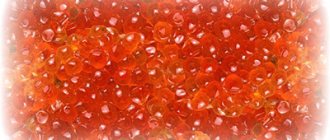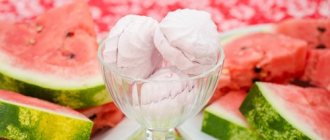Useful properties of carrots
Breast milk is the baby's only source of nutrition during the first months of life. A nursing mother should follow a diet, limiting the menu to harmful or unnecessary foods.
Carrots are a healthy vegetable with a high content of substances beneficial to the body. The vegetable is rich in vitamins A, B, C, E. The root vegetable, due to beta-carotene and vitamins, as well as other properties, improves vision especially strongly and is beneficial - it strengthens teeth and gums. Bone tissue is formed, the baby’s teeth, mucous membranes and the retina of the eye are saturated with useful components, and the work of immune cells is enhanced.
The root vegetable is rich in potassium, magnesium, phosphorus, iron and iodine. The coarse fiber contained in carrots improves intestinal motility and gastric microflora.
Despite all the benefits of the root vegetable, doctors do not recommend consuming vegetables or fruits with an orange or red tint during lactation. These are strong allergens that will do more harm than good.
Carrots are found not only in many first and second courses, but also in desserts and casseroles. The useful root vegetable is often used for medicinal purposes or folk medicine.
Useful properties of carrots:
- Improves memory.
- Helps with stress and depression.
- Normalizes blood pressure.
- Improves the functioning of the genitourinary organs.
- Strengthens the body's defenses.
- Normalizes bowel movements.
- Heals wounds.
- Prevents cancer.
- Increases hemoglobin.
All substances of the root vegetable penetrate into mother's milk and into the baby. If the mother eats a large amount of carrots, the baby may suffer, because the child’s body is just adapting to new conditions.
Important subtleties
Carrots during breastfeeding increase lactation, as they have lactogenic properties. It is used in the form of juices, infusions, teas, and decoctions. Useful combinations are licorice, lemon balm, cumin, radish, fennel, nettle, dandelion. It is a soft root vegetable that mixes easily with other ingredients to give your baby a good dose of healthy ingredients. If a mother needs to restore lactation, consume this root vegetable without fear.
Nutritionists recommend eating the product boiled ; the raw product contains fewer antioxidants.
Harm of carrots
You need to consume the root vegetable in small portions, constantly monitoring the reaction of the child’s body. It’s better to play it safe and add the root vegetable to dishes rather than eat it in its pure form. An allergy to carrots is manifested by skin rashes, baby anxiety, intestinal colic, and diarrhea. Until six months after the birth of the child, root vegetables must be excluded.
A woman who is breastfeeding or lactating should not eat carrots if she has had or has ulcerative lesions of the stomach, intestines or other problems.
If a child has signs of an allergy, it is recommended to give an antihistamine according to age or contact a pediatrician.
Effect of carrots during lactation
Carrots are on the list of vegetables recommended for nursing mothers. Its effectiveness has been proven by many studies conducted in clinical settings and based on observations of young mothers. It is recommended to be consumed every day, especially for those women who have a problem with low lactation levels. Consisting of 90% liquid, carrots can significantly increase the amount of breast milk. Plus, the low-calorie vegetable has a positive effect on your figure, because 100 grams contains only 35 kcal. For the body of a young mother, carrots have a number of beneficial effects:
- Gives tone to the vascular system, strengthens the heart muscle;
- Promotes rapid healing of wounds;
- Reduces cholesterol levels;
- Normalizes hormonal levels;
- Gives the body energy;
- Prevents the development of cancerous tumors;
- Improves the condition of skin and hair;
- Has a beneficial effect on vision, helps overcome eye diseases;
- Increases hemoglobin.
When can you eat carrots during breastfeeding?
Women are interested in the question of whether carrots can be consumed while breastfeeding, and from what period. If a woman eats carrots in small quantities, the baby should not have problems. During the first time of breastfeeding, the root vegetable is added to the first and second courses.
According to research, a young mother can and even needs carrots. The volume of breast milk increases, it becomes richer and more nutritious due to nutrients. The vegetable has a low calorie content, for example, 100 g of root vegetables contain 35 kcal. Carrots are very filling, so you won’t feel hungry for a while.
The first meal is no more than one piece of boiled root vegetable (or baked). Over the course of two days, the child’s reaction will appear. If the problem has passed, the nursing mother can continue to eat boiled carrots. If negative factors appear, you should postpone the use of this or a similar product for several weeks.
If your baby suffers from food allergies, then you shouldn’t experiment. Fresh, raw carrots are more difficult for the intestines to digest during breastfeeding, so it is recommended to consume the root vegetable boiled. The permissible dose per day is no more than 150 g (1-2 medium-sized root vegetables).

In the diet, the vegetable helps different systems of the body - in any type of preparation. An important factor is the quality and choice of vegetables.
Ideal root vegetable option:
- From my personal garden.
- Acquired firm fruit of bright color.
- No dark, rotten spots or cracks.
Another important factor is proper use. For example, drinking carrot juice is easier than eating two root vegetables. It must be freshly squeezed or purchased at a pharmacy or specialty store. You need to study the composition when purchasing a product. The presence of dyes, preservatives or thickeners is a reason to refuse the purchase. It is also important to store it properly. This should be done in a cool place.
It is more useful to combine different juices - beetroot, apple, carrot, pumpkin. According to doctors, it is better to mix carrot juice with vegetable oil or milk to improve the absorption of carotene into the bloodstream. Just adding a few drops is enough.

Vegetable salads, carrot cake, and casseroles are also healthy.
Eating orange vegetables in large quantities seriously overloads the stomach of a young mother, which causes vomiting or diarrhea. An excess of carotene turns the skin a characteristic orange color.
You need to introduce a new product, unknown to the baby, in the first half of the day, and monitor the body’s reaction for two days.
Rules for eating carrots while breastfeeding
It is recommended to start consuming the root vegetable no earlier than a month after birth. Although the vegetable contains a number of nutrients, not all children react equally to carotene. Some kids have a family tendency to diathesis. Eating carrots can trigger an allergic reaction. We must remember that everything is individual.

It is better to introduce carrots into food boiled or stewed. To do this, you can add a small amount to the soup and watch the baby’s reaction. If the child is calm for two days, then the boiled root vegetable can be added to salads, gradually increasing consumption. It is not recommended to eat more than one to two medium carrots per day. This covers the daily requirement for vitamin A.
The answer to the question whether a nursing mother can eat carrots raw is controversial. Large amounts of beta-carotene and antioxidants can cause digestive upset or an allergic reaction in your baby. Raw carrots can be eaten from 5 to 6 months, not earlier. It should also be introduced into the diet in small portions, observing the baby’s reaction.
Mommy is forbidden to eat carrots in Korean. It contains a lot of hot spices and changes the taste of breast milk. The baby will not latch on to the breast.
Breastfeeding mothers are advised to keep a diary of introducing new foods into their diet. It needs to note each new product and the child’s reaction. There is no need to introduce two complementary foods at once. This will not allow you to find out what your child is allergic to.

When choosing a vegetable, consider:
- Freshness of the product. The root crop should not be limp or have dark spots. A spoiled product can cause an intestinal infection.
- Vegetable storage conditions. Carrots should be stored in a dry, dark place. Otherwise, it will lose its healing properties.
When choosing carrots, you need to focus on the color of the vegetable. It should be bright orange. The shape of the vegetable is conical, without additional shoots or cuts. This is a sign of a quality product. It is advisable that these be vegetables collected from the home garden. Before use, carrots should be thoroughly washed under running water and peeled.
Carrot recipes for nursing mothers
Carrot juice during breastfeeding will be beneficial as a source of vitamin A, retinol, and will also increase lactation. You should drink the juice half an hour before meals or on an empty stomach in the morning. It is better to dilute the juice with water, gradually increasing the portion.
A salad option made from raw carrots, cabbage and apples will enrich the body of a young mother and baby with useful substances. This dish with carrots contains the necessary substances, fiber, ascorbic acid. You can add some walnuts or dried apricots during breastfeeding. The salad is dressed with low-fat sour cream, yogurt or vegetable oil.
You can eat carrot-curd casserole from the age of two months.
Ingredients:
- Cottage cheese - 2 packs.
- Carrots - 2 pcs.
- Eggs - 3 pcs.
- Sugar - 3 tbsp.
- Flour - 3 tbsp.
- Milk - 100 ml.

Vegetables are pre-washed and peeled. The orange root vegetable is grated on a fine grater and mixed in a blender with all the ingredients. Grease the baking dish with oil and spread the resulting consistency. The oven is preheated to 150 degrees and the pan is baked for 40 minutes. The casserole is served with sour cream or yogurt.
The popular and cheesy cream soup is healthy due to the addition of various vegetables.
Ingredients:
- Low-fat broth - 2 l.
- Carrots - 2 pcs.
- Cauliflower or broccoli - 700 g.
- Processed cheese - 3 tbsp.

Vegetables need to be washed, carrots peeled, and cauliflower separated by buds. The carrots are cut into large rings and sent to the boiling broth to simmer. After 10 minutes, add the cauliflower and cook for another 5 minutes. Let the soup cool slightly and add cheese. Use a blender to grind the ingredients to a creamy consistency.
A nursing mother should not eat foods that contain yeast. This applies to baked goods, such as carrot pies and fried foods. During nutrition, the development of a problem can occur suddenly, for example, a stomach disease worsens or an allergy develops. You can add homemade small crackers.
Contraindications during pregnancy and lactation
Raw carrots or their juice while breastfeeding are nutritious, no doubt, but excessive consumption can lead to certain complications during pregnancy and while breastfeeding:
- Vitamin A – its excess interferes with fetal growth.
- Carotene - when there is too much of it, it leads to inability to absorb, and the skin acquires a yellow tint. This process is reversible and harmless.
- B-carotene – excess causes cancer.
- Children may be allergic to it.
- Excessive consumption can cause nausea and headaches, lethargy and weakness.
Restrictions and contraindications
During breastfeeding, the choice of foods must be approached with extreme caution. Each new item in the diet is a potential danger that can lead to a severe allergic reaction. That is why new food is introduced to the menu very slowly and in due time. For example, carrots contain many natural dyes, which cause rashes or redness. The most sensitive babies may be bothered by colic. However, the described troubles can be avoided if you consume the vegetable in the prescribed quantity.
Forbidden:
- Eat the product in its raw form earlier than 2 months after birth;
- Use carrots for ulcers and gastrointestinal diseases;
- Introduce vegetables into the diet if the newborn is less than 4 weeks old;
- Combine the consumption of carrot juice, raw carrots with starchy foods or flour products.











